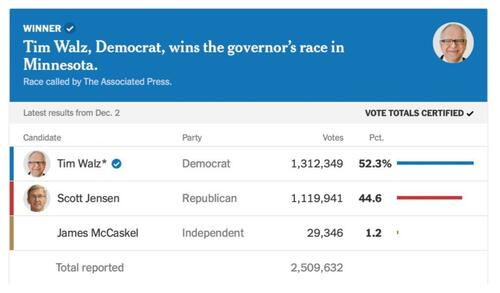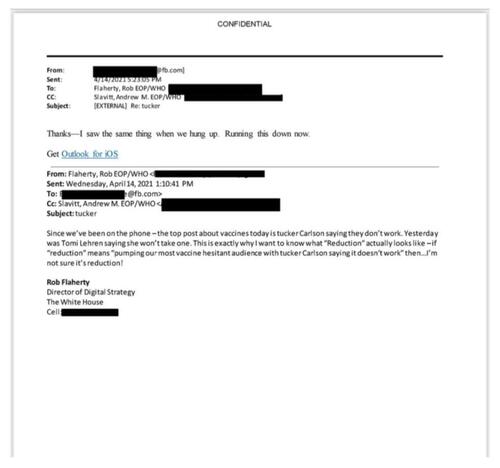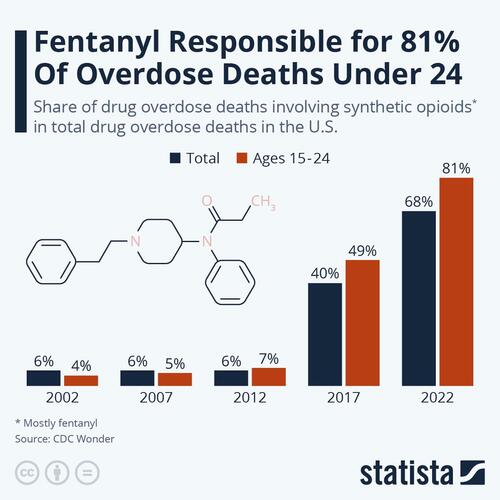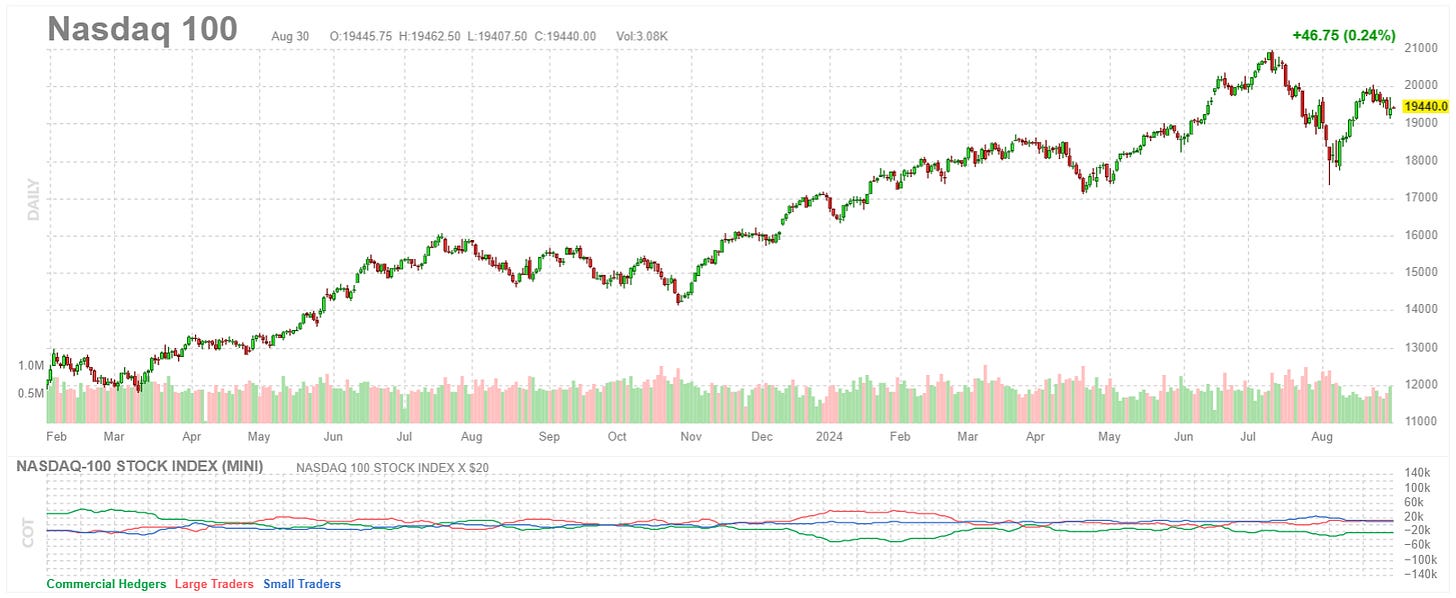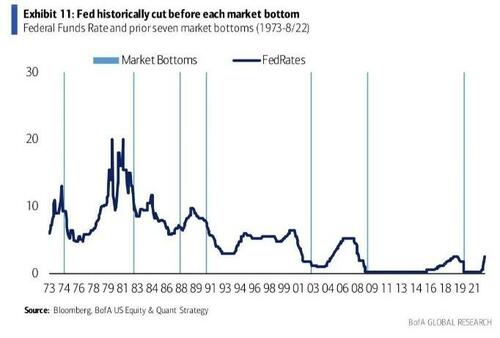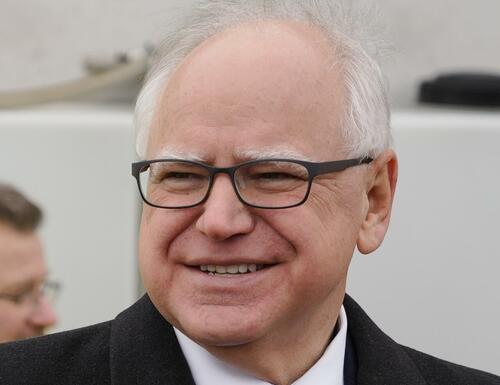Why Did Zuckerberg Choose Now To Confess?
Authored by Jeffrey Tucker via The Brownstone Institute,
Consider Mark Zuckerberg’s revelation and its implications for our understanding of the last four years, and what it means for the future.
On many subjects important to public life today, vast numbers of people know the truth, and yet the official channels of information sharing are reluctant to admit it. The Fed admits no fault in inflation and neither do most members of Congress. The food companies don’t admit the harm of the mainstream American diet. The pharmaceutical companies are loath to admit any injury. Media companies deny any bias. So on it goes.
And yet everyone else does know, already and more and more so.
This is why the admission of Facebook’s Mark Zuckerberg was so startling. It’s not what he admitted. We already knew what he revealed. What’s new is that he admitted it. We are simply used to living in a world swimming in lies. It rattles us when a major figure tells us what is true or even partially or slightly true. We almost cannot believe it, and we wonder what the motivation might be.
In his letter to Congressional investigators, he flat-out said what everyone else has been saying for years now.
In 2021, senior officials from the Biden Administration, including the White House, repeatedly pressured our teams for months to censor certain COVID-19 content, including humor and satire, and expressed a lot of frustration with our teams when we didn’t agree….I believe the government pressure was wrong, and I regret that we were not more outspoken about it. I also think we made some choices that, with the benefit of hindsight and new information, we wouldn’t make today. Like I said to our teams at the time, I feel strongly that we should not compromise our content standards due to pressure from any Administration in either direction – and we’re ready to push back if something like this happens again.
A few clarifications. The censorship began much earlier than that, from March 2020 at the very least if not earlier. We all experienced it, almost immediately following lockdowns.
After a few weeks, using that platform to get the word out proved impossible. Facebook once made a mistake and let my piece on Woodstock and the 1969 flu go through but they would never make that mistake again. For the most part, every single opponent of the terrible policies was deplatformed at all levels.
The implications are far more significant than the bloodless letter of Zuckerberg suggests. People consistently underestimate the power that Facebook has over the public mind. This was especially true in the 2020 and 2022 election cycles.
The difference in having an article unthrottled much less amplified by Facebook in these years was in the millionfold. When my article went through, I experienced a level of traffic that I had never seen in my career. It was mind-boggling. When the article was shut down some two weeks later – after focused troll accounts alerted Facebook that the algorithms had made a mistake – traffic fell to the usual trickle.
Again, in my entire career of closely following internet traffic patterns, I had never seen anything like this.
Facebook as an information source offers power like we’ve never seen before, especially because so many people, especially among the voting public, believe that the information they are seeing is from their friends and family and sources they trust. The experience of Facebook and other platforms framed the reality that people believed existed outside of themselves.
Every dissident, and every normal person who had some sense that something odd was going on, was made to feel like some sort of crazy cretin who held nutty and probably dangerous views that were completely out of touch with the mainstream.
What does it mean that Zuckerberg now openly admits that he excluded from view anything that contradicted government wishes? It means that any opinions on lockdowns, masks, or vaccine mandates – and all that is associated with that including church and school closures plus vaccine harms – were not part of the public debate.
We had lived through and were living through the most significant far-reaching attacks on our rights and liberties in our lifetimes, or, arguably, on the history record in terms of scale and reach, and it was not part of any serious public debate. Zuckerberg played an enormous role in this.
People like me had come to believe that average people were simply cowards or stupid not to object. Now we know that this might not have been true at all! The people who objected were simply silenced!
During two election cycles, the Covid response was not really in play as a public controversy. This helps account for why. It also means that any candidate who attempted to make this an issue was automatically downgraded in terms of reach.
How many candidates are we talking about here? Considering all the US elections at the federal, state, and local levels, we are talking about several thousand at least. In every case, the candidate who was speaking out about the most egregious attacks on liberty came to be effectively silenced.
A good example is the Minnesota governor’s race in 2022 that was won by Tim Walz, now running as VP with Kamala Harris. The election pitted Walz against a knowledgeable and highly credentialed medical expert, Dr. Scott Jensen, who made the Covid response a campaign issue. Here is how the vote totals lined up.
Of course, Dr. Jensen could get no traction at all on Facebook, which was enormously influential in this election and which just admitted that it was following government guidelines in censoring posts. In fact, Facebook banned him from advertising completely. It reduced his reach by 90% and likely lost him the election.
You can listen to Jensen’s account here:
IMPOTENT PAWNS – Joe Biden conspired with Facebook to reduce Americans to impotent pawns! pic.twitter.com/k5SxQknNRL
— Scott Jensen (@drscottjensen) August 27, 2024
Consider how many other elections were affected. It’s astonishing to think of the implications of this. It means that quite possibly an entire generation of elected leaders in this country was not legitimately elected, if by legitimate we mean a well-informed public that is given a choice concerning the issues that affect their lives.
Zuckerberg’s censorship – and this pertains to Google, Instagram, Microsoft’s LinkedIn, and Twitter 1.0 – denied the public a choice on the central matter of lockdowns, masking, and shot mandates, the very issues that have fundamentally roiled the whole of civilization and set the path of history on a dark course.
And it is not just the US. These are all global companies, meaning that elections in every other country, all over the globe, were similarly affected. It was a global shutdown of all opposition to radical, egregious, unworkable, and deeply damaging policies.
When you think about it this way, this is not just some minor error in judgment. This was an earth-shattering decision that goes way beyond managerial cowardice. It goes beyond even election manipulation. It is an outright coup that overthrew an entire generation of leaders who stood up for freedom and replaced them with a generation of leaders who acquiesced to power exactly at the time it mattered the most.
Why did Zuckerberg choose now to make this announcement and publicly reveal the inside play? He was obviously unnerved by the assassination attempt on Trump’s life, as he said.
WATCH: Facebook @Meta CEO Mark Zuckerberg said seeing President Trump get up and pump his fist after being shot in the face at his rally in Pennsylvania is “one of the most badass things” he’s ever seen.
Looks like Zuck is trying to say nice things to avoid all responsibility… pic.twitter.com/wKnOFGYZCA
— Laura Loomer (@LauraLoomer) July 19, 2024
Then also you have the French arrest of Telegram founder and CEO Pavel Durov, an event which surely rattles any major CEO of a communication platform. You have the arrest and incarceration of other dissidents like Steve Bannon and many others.
You also have the litigation over free speech back in play now that RFK, Jr has been cleared as having standing, kicking the case of Missouri v. Biden back to the Supreme Court, which wrongly decided last time to deny standing to other plaintiffs.
Zuckerberg of all people knows the stakes. He understands the implications and the scale of the problem, as well as the depths of the corruption and deception at play in the US, EU, UK, and all over the world. He may figure that everything is going to come out at some point, so he might as well get ahead of the curve.
Of all the companies in the world that would have a real handle on the state of public opinion right now, it would be Facebook. They see the scale of the support for Trump. And Trump has said on multiple occasions, including in a new book coming out in early September, that he believes Zuckerberg should be prosecuted for his role in manipulating election outcomes. What if, for example, his own internal data is showing 10 to 1 support for Trump over Kamala, completely contradicting the polls which are not credible anyway? That alone could account for his change of heart.
It becomes especially pressing since the person who did the censoring at the Biden White House, Rob Flaherty, now serves as Digital Communications Strategist for the Harris/Walz campaign. There can be no question that the DNC intends to deploy all the same tools, many times over and far more powerful, should they take back the White House.
“Under Rob’s leadership,” said Biden upon Flaherty’s resignation, “we’ve built the largest Office of Digital Strategy in history and, with it, a digital strategy and culture that brought people together instead of dividing them.”
At this point, it’s safe to assume that even the most well-informed outsider knows about 0.5% of the whole of the manipulation, deception, and backroom machinations that have taken place over the past five or so years. Investigators on the case have said that there are hundreds of thousands of pages of evidence that are not classified but have yet to be revealed to the public. Maybe all of this will pour forth starting in the new year.
Therefore, the Zuckerberg admission has much larger implications than anyone has yet admitted.
It provides a first official and confirmed peek into the greatest scandal of our times, the global silencing of critics at all levels of society, resulting in manipulating election outcomes, a distorted public culture, the marginalization of dissent, the overriding of all free speech protections, and gaslighting as a way of life of government in our times.
Tyler Durden
Mon, 09/02/2024 – 07:20
via ZeroHedge News https://ift.tt/ouM6WHZ Tyler Durden

